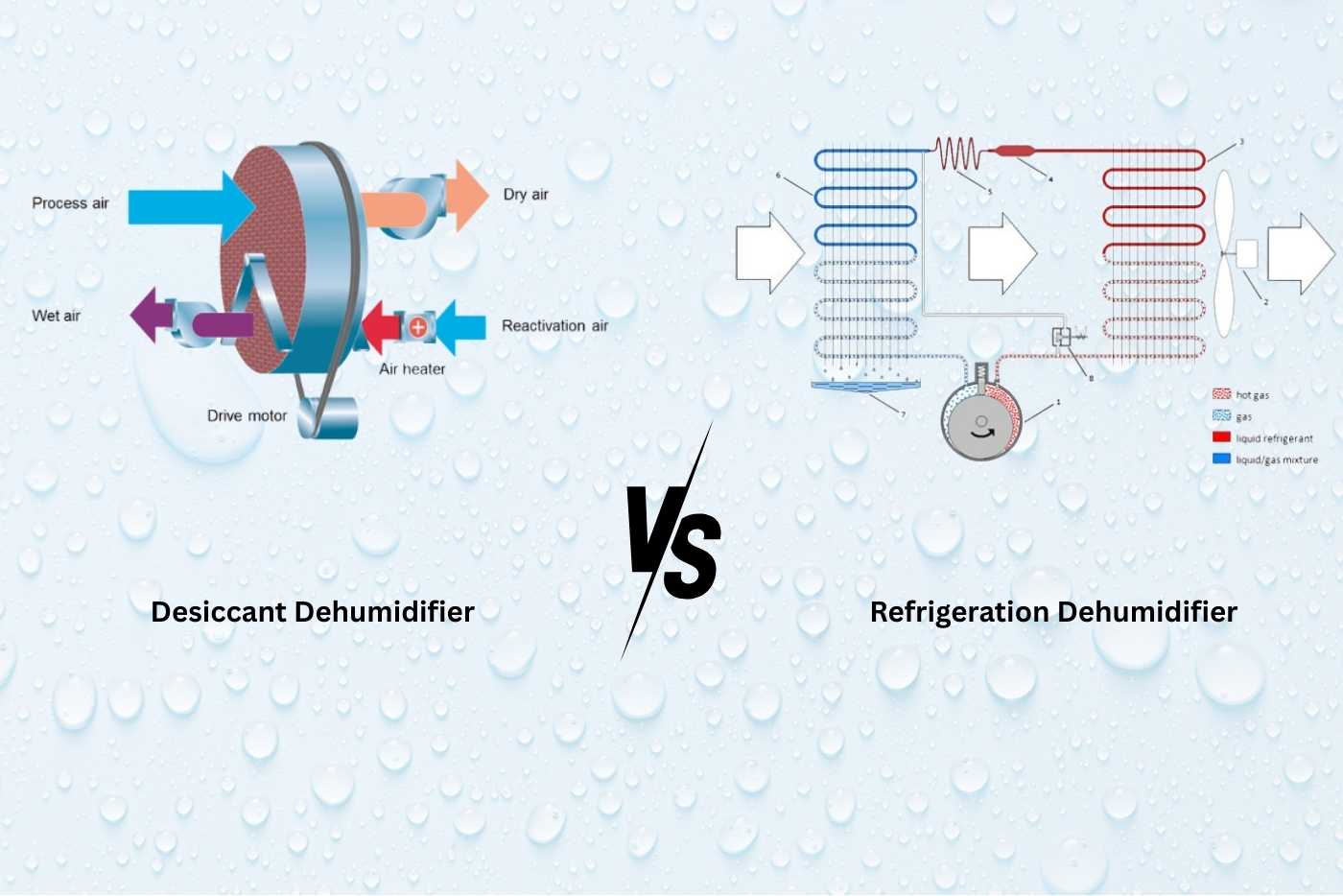
Choosing the right dehumidifier in the UAE depends on understanding the difference between desiccant and refrigerant dehumidifiers. Both are effective for humidity control, but they work on distinct principles and are ideal for different applications. Whether you need a commercial dehumidifier, industrial dehumidifier, or swimming pool dehumidifier, knowing their differences can help you select the best unit for your environment.
A refrigerant dehumidifier, also known as a compressor-based dehumidifier, uses the vapor compression cycle. Moist air is drawn in and passed over cooling coils. The moisture condenses into water, which is collected in a tank or drained away. The dry air is reheated and released back into the space.
These units are highly effective in warm and humid climates like the UAE, making them suitable for residential, basement, commercial, and warehouse dehumidification.
Key Benefits:
Ideal for high-temperature, high-humidity conditions
Energy-efficient under typical ambient conditions
Commonly used in homes, offices, and indoor swimming pools
A desiccant dehumidifier uses a moisture-absorbing material (usually a desiccant rotor) to extract humidity from the air. The saturated rotor is then regenerated by a heated air stream, releasing moisture through an exhaust duct.
Desiccant dehumidifiers are ideal for low-temperature environments or applications where very low relative humidity is needed. These are often used in pharmaceutical, food processing, military storage, and cold rooms.
Key Benefits:
Works efficiently in cold and low-humidity conditions
Lightweight and quieter operation
No refrigerant gas, making it eco-friendly
| Feature | Refrigerant Dehumidifier | Desiccant Dehumidifier |
|---|---|---|
| Working Principle | Cooling coil condensation | Moisture-absorbing desiccant rotor |
| Best Use | Warm, humid environments | Cold, dry, or controlled environments |
| Efficiency | High in warm climates | High in low-temp settings |
| Noise & Weight | Heavier and noisier | Lighter and quieter |
| Applications | Homes, swimming pools, offices | Cold storage, pharmaceuticals |
If your application is in Dubai, Abu Dhabi, or across the UAE, where the climate is hot and humid, a refrigeration dehumidifier is generally more energy-efficient. However, for low-temperature storage rooms, food-grade environments, or industrial process areas requiring <40% RH, a desiccant dehumidifier is the better choice.
At JAQS, we specialize in both types of dehumidification systems. We offer custom-engineered industrial dehumidifiers in UAE, suited for warehouses, swimming pools, manufacturing plants, and data centers.
Need help choosing the best dehumidifier in the UAE?
Contact JAQS for expert consultation and tailor-made humidity control solutions.
FAQs
1. Are desiccant dehumidifiers more expensive to run?
Yes, they consume more energy for regeneration but are more effective in low-temperature settings.
2. Can I use a refrigerant dehumidifier in cold storage?
No, its efficiency drops significantly in cooler environments.
3. Does JAQS provide after-sales support in UAE?
Yes, we provide complete support, maintenance, and spare parts availability locally.
Designed & Delivered by Our Expert Team